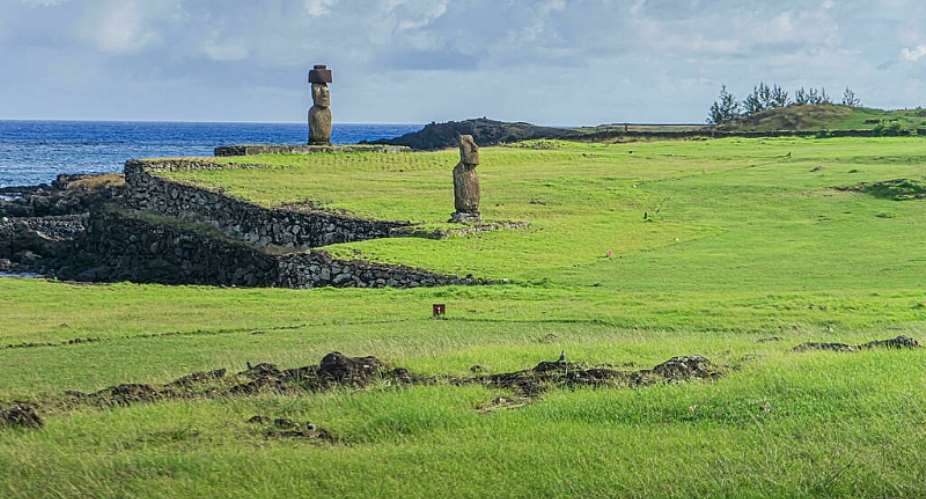Despite being cut off from the world for more than a year and a half because of the Covid pandemic, the inhabitants of Easter Island on Sunday voted against reopening their home to tourists.
Sixty-seven percent of those who voted on the remote island, known for its impressive megaliths of mysterious origin, said they wanted to keep their borders shut – despite not having seen a tourist since March 2020.
The vote on the Chilean island in the South Pacific, some 3,700km off the coast of Chile, is not binding however. The final decision will be made by health authorities in the mainland region of Valparaiso.
So far Easter Island, which has some 10,000 inhabitants, has recorded eight cases of Covid-19 – and no new infections since September 2020. There have been zero deaths.
Most of those who live on the island are Rapa Nui, the indigenous name of the island, and are of Polynesian culture.
Large abstention
The simple question put to the people on Sunday was “Do you want to open the island to tourists in January?” Despite the resounding No vote, some 80 percent of islanders failed to cast a ballot at all.
"The island derives its income from the tourist industry. It's the source of the economy," said Salvador Atan, vice president of the local Ma'u Henua community, which administers Rapa Nui National Park.
- Tiny Pacific Islands become battleground in superpower spat
- French Pacific islands redesign the franc
Like the local authorities, Atan is in favor of reopening the island on 1 January.
More than 73 percent of Easter Island's population is vaccinated against Covid-19, but the medical centre in Hanga Roa, the capital, has no intensive care unit.
In contrast, Chile has recorded more than 1.6 million coronavirus cases and more than 36,000 deaths since the pandemic began.





 Akufo-Addo spotted ordering chiefs to stand for his handshake
Akufo-Addo spotted ordering chiefs to stand for his handshake
 Akufo-Addo ‘disrespects’ every chief in Ghana except Okyenhene — NDC Communicato...
Akufo-Addo ‘disrespects’ every chief in Ghana except Okyenhene — NDC Communicato...
 Supreme Court clears way for dual citizens to hold key public positions
Supreme Court clears way for dual citizens to hold key public positions
 Be transparent, don’t suppress the truth – Prof. Opoku-Agyemang to Jean Mensa
Be transparent, don’t suppress the truth – Prof. Opoku-Agyemang to Jean Mensa
 ‘I won’t tell the world I was only a driver’s mate during challenges’ – Prof Jan...
‘I won’t tell the world I was only a driver’s mate during challenges’ – Prof Jan...
 We’ll prosecute corrupt officials of Akufo-Addo’s govt – Prof Jane Naana
We’ll prosecute corrupt officials of Akufo-Addo’s govt – Prof Jane Naana
 [Full text] Acceptance speech by Prof Jane Naana Opoku-Agyemang as 2024 NDC Runn...
[Full text] Acceptance speech by Prof Jane Naana Opoku-Agyemang as 2024 NDC Runn...
 Election 2024: Don’t be complacent, we haven’t won yet – Asiedu Nketia cautions ...
Election 2024: Don’t be complacent, we haven’t won yet – Asiedu Nketia cautions ...
 Election 2024: Stop fighting over positions in Mahama’s next govt – Asiedu Nketi...
Election 2024: Stop fighting over positions in Mahama’s next govt – Asiedu Nketi...
 Prof Jane Naana Opoku-Agyemang will restore dignity of vice presidency – Fifi Kw...
Prof Jane Naana Opoku-Agyemang will restore dignity of vice presidency – Fifi Kw...
